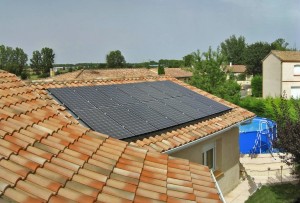One of the most important weapons for the Ministry of Environment in promoting sustainable development in the communes of France is the Heat Fund. This support mechanism for heat production finances projects for the sectors of collective housing, industry, and the service industry should see its budget doubled this year thanks to the bill on ” energy transition to green growth ‘. How does it work and how effective is it?
Since its inception in December 2008, the French Heat Fund supports the production of heat through renewable energy (biomass, geothermal, solar and recovery). The fund is an assistance that benefits French industries and jobs and has been a resounding success. The fund operates by seeking submissions for national and regional projects in the BCIAT industry (Biomass, heat, industry, agriculture and tertiary) every year and of these proposals, the Ademe (French Agency for Environment and Energy Management) selects the most relevant energy efficient project to subsidize. A mechanism that drives the whole sector to a higher quality standard and rewards technological advances which protect the environment.
A support with proven results
According to a study carried out by Ernst & Young on behalf of Ademe, the economic and social impact of a heating network project is significantly more important than the impact of construction. This translates into jobs, lower energy costs, and momentum for the French economy (84% of expenditure and 86% of the activity generated are of French origin). This observation has also been made by the Ministry of Environment and renewable energy in its regular review, published this month. The Government emphasizes that the Heat Fund has enabled the creation of 5,000 permanent jobs and 1,500 annual jobs. It also highlights the benefits of the equipment that has already been installed and that will avoid the need to import the equivalent of one million toe/year of fossil fuels, equivalent to €300 million in savings per year.
Outlook for the Heat Fund
If the results are already satisfactory for the government, the Heat Fund also promises greater future results. Ségolène Royal’s “energy transition to green growth” bill, if validated in the National Assembly and the Senate, plans to double the amount of Heat Fund aid. The government also hopes to create up to 15,000 jobs by 2020 thanks to this mechanism. Finally, even if the Heat Fund is simply maintained at its present level, the import cost of gas saved would be over €700 million a year wherever heating networks are installed. The Heat Fund is therefore not only a great achievement that benefits everyone but also an initiative that is here to stay.








